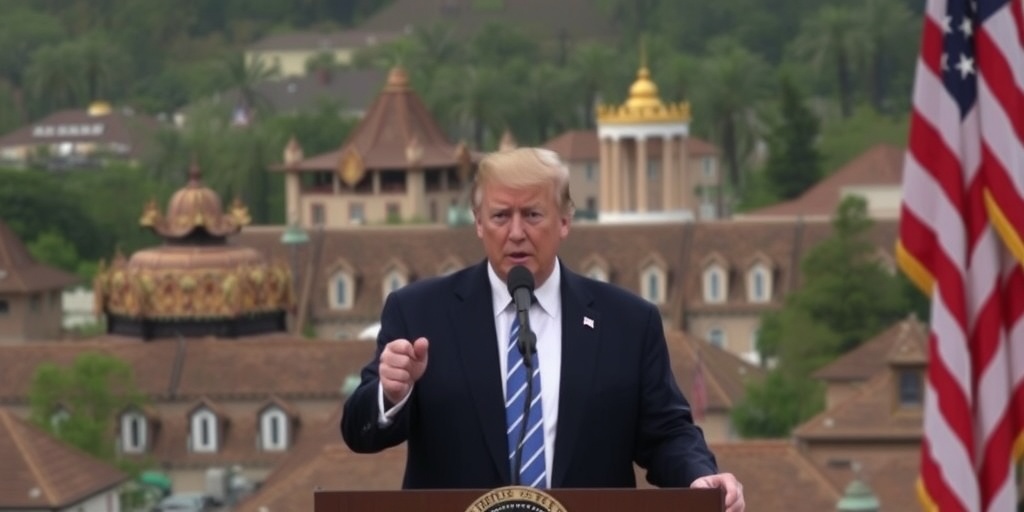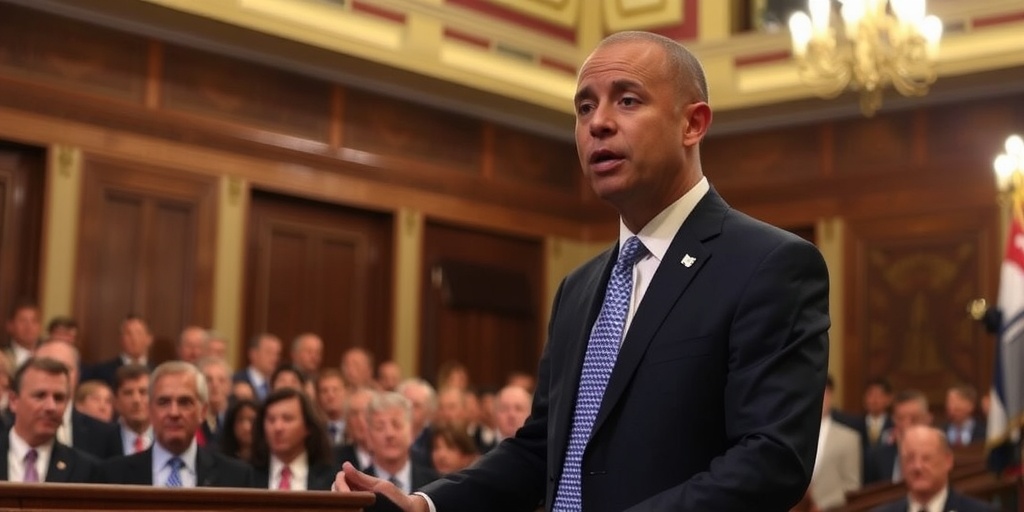Now Reading: Senators Criticize Trump’s Response to Myanmar Earthquake
-
01
Senators Criticize Trump’s Response to Myanmar Earthquake
Senators Criticize Trump’s Response to Myanmar Earthquake

Democratic Senators Criticize Trump Administration’s Response to Myanmar Earthquake
In the wake of a devastating earthquake in Myanmar, Democratic senators have raised concerns about the insufficient U.S. aid response, criticizing the Trump administration for what they termed a "paltry" effort. The earthquake, which struck on Friday, has resulted in over 2,700 casualties as buildings in Myanmar and neighboring Thailand collapsed. Rescue and relief efforts have seen active involvement from countries like China, Russia, and India, who have dispatched teams and supplies to assist in the crisis.
On Wednesday, six Democratic senators sent a letter to key officials in the Trump administration, including Secretary of State Marco Rubio and Treasury Secretary Scott Bessent, highlighting the United States’ lagging response to the humanitarian disaster. The letter was spearheaded by Senator Chris Coons from Delaware, a member of the Foreign Relations Committee. In this correspondence, the senators pointed out that the U.S. government appears to be failing its first test in responding to a humanitarian crisis, a situation exacerbated by the recent drastic cuts to foreign aid and the dismantling of the United States Agency for International Development (USAID).
The senators expressed their deep concern that the administration’s actions could send a detrimental message on the global stage, suggesting that adversaries like China and Russia might be viewed as more reliable and trustworthy partners than the United States. This assertion underscores the potential long-term strategic implications of the current administration’s foreign aid policies.
The September earthquake in Myanmar has prompted the ruling military junta to appeal for international assistance. However, as the U.S. response has been lacking, the letter highlighted the need for the government to take immediate action, including granting sanctions waivers for earthquake relief entering the country. The senators insisted that humanitarian aid must not be hindered by existing U.S. sanctions, which could further exacerbate the suffering of those impacted by the disaster.
In a stark contrast to the comprehensive aid responses of previous administrations, the Trump administration did not deploy any specialist aid teams to Myanmar immediately following the earthquake. The lack of U.S. presence echoes a concerning trend—over the weekend, reports indicated that the U.S. had struggled even to send a three-member assessment team to evaluate the situation on the ground.
The challenges in the U.S. response can be traced to extensive cuts made since January to the foreign aid budget and the workforce of USAID. Many disaster response teams, which functioned as crucial assets in providing international disaster aid, have been severely undermined. Key contractor specialists who once supported these teams have been laid off as a result of budgetary constraints. Furthermore, logistical capabilities have been compromised, leaving the U.S. unprepared for rapid aid deployment.
Sources confirmed that two USAID employees who were set to be stationed in Myanmar as humanitarian advisors were instructed earlier this year to remain in Washington due to budget cuts impacting their positions. This lack of personnel at critical moments during a crisis reveals systemic issues within U.S. aid operations. Over recent days, as some USAID members attempted to coordinate aid efforts related to the earthquake, they received notification of impending layoffs, with emails directing them to vacate the office.
Additionally, contracting for transportation services that would facilitate sending emergency responders and resources to international disaster zones has been curbed, further limiting the U.S. role in global humanitarian efforts.
While the United States Embassy in Myanmar announced plans to allocate up to $2 million in aid—an amount significantly lower than what previous administrations have provided for similar disasters—the letters from Senate Democrats urge the administration to leverage existing resources more effectively.
The senators cited recent coverage highlighting the inadequacies of the U.S. response, pressing for an urgent evaluation of what can be executed to assist those affected in Myanmar. They emphasized the importance not only of humanitarian intervention but also of maintaining U.S. interests and credibility on the world stage.
Moreover, they called for the Treasury Department to authorize all transactions associated with earthquake relief efforts that might typically be constrained by U.S. sanctions—stressing the urgency of expediting relief efforts in the crisis-stricken region.
In a subsequent statement, State Department spokeswoman Tammy Bruce affirmed that U.S. assessment teams were in the process of deploying to affected areas, with disaster response experts from various locations, including Washington, Manila, and Bangkok, trying to mount a coordinated response to the humanitarian crisis unfolding in Myanmar. The developments highlight an intricate intersection between foreign policy, humanitarian aid, and the responsibilities of the U.S. government during global crises.
Stay Informed With the Latest & Most Important News
Previous Post
Next Post
-
 01New technology breakthrough has everyone talking right now
01New technology breakthrough has everyone talking right now -
 02Unbelievable life hack everyone needs to try today
02Unbelievable life hack everyone needs to try today -
 03Fascinating discovery found buried deep beneath the ocean
03Fascinating discovery found buried deep beneath the ocean -
 04Man invents genius device that solves everyday problems
04Man invents genius device that solves everyday problems -
 05Shocking discovery that changes what we know forever
05Shocking discovery that changes what we know forever -
 06Internet goes wild over celebrity’s unexpected fashion choice
06Internet goes wild over celebrity’s unexpected fashion choice -
 07Rare animal sighting stuns scientists and wildlife lovers
07Rare animal sighting stuns scientists and wildlife lovers





















